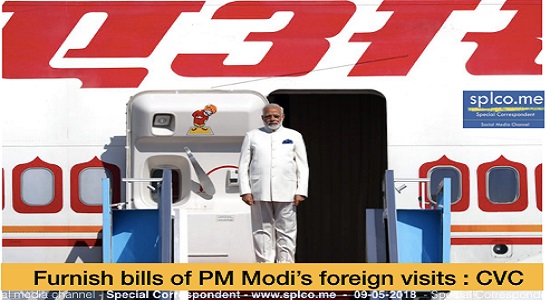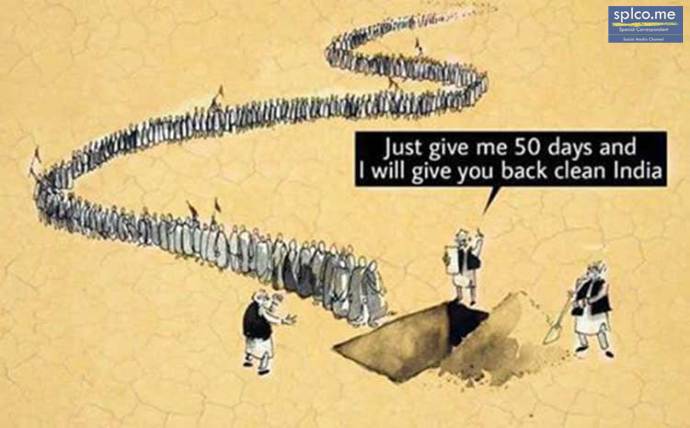The Central Information Commission (CIC) Tuesday directed the national carrier Air India to furnish bills raised during international visits made by Prime Minister Narendra Modi during the year 2016-2017 within seven days.

The CIC’s order comes two years after RTI activist Commodore (retd) Lokesh Batra filed an application, seeking information on bills raised during the PM’s international travels.
In an order dated 8 May, the CIC rejected the submission made by Air India’s Central Public Information Officer (CPIO) that the details sought by Batra were exempt under the cloak of commercial confidence and fiduciary relationship with the client concerned, which in this case is another wing of the government.
In its order, which was uploaded on the website Tuesday after close scrutiny of the information sought by Batra, the CIC observed that dates, duration and places of the Prime Minister’s foreign visits can be disclosed, since these details were widely reported in the media.
“Moreover, by no stretch of imagination it can be acceptable that the information regarding dates, duration and places of visit by the Hon’ble PM in his official capacity are exempted u/s 8 or 9 of the RTI Act (the exemption clauses under the RTI Act),” the order read.
The CIC further ruled that “amounts of bills raised with date(s) of each individual bill as well as the dates of receipt of amounts with dates against individual bill so raised are concerned; these should be disclosed as the same involved expenditure out of public exchequer”.
Batra observed that this order was a victory towards further transparency in the system when it comes to spending public money. “The order is welcome, though it is two years too late,” Batra said.
The CIC order was passed after Batra filed a plea seeking details of foreign visits undertaken (till the date of the response) by Modi during the financial year 2016-2017. Batra had filed the plea with Air India since it had provided the facility of chartered flights for the trips concerned.
Batra also sought details that included dates, duration and places of visits (abroad) and amount of bills raised date-wise by Air India. The amounts received against each such bill raised with date(s) of receipt of amounts raised in the stated bills were also sought in the above stated RTI application.
Information Commissioner Amitava Bhattacharyya observed that Air India’s denial to part with the sought-for information without citing any exemption clause under the RTI Act was not acceptable.
“The CPIO on one hand claimed that the sought-for information is related to a matter of commercial confidence, and on the other hand, the concerned CPIO stated that the information sought-for is maintained by Air India in a fiduciary capacity,” Bhattacharyya observed.
In his second appeal, Batra had stressed that Air India is a public sector authority working under the control of government, which is performing its statutory function of loaning its aircrafts to other government bodies. Hence, this loaning of its chartered flights to various government departments/agencies cannot be stated to be a matter of commercial confidence.














